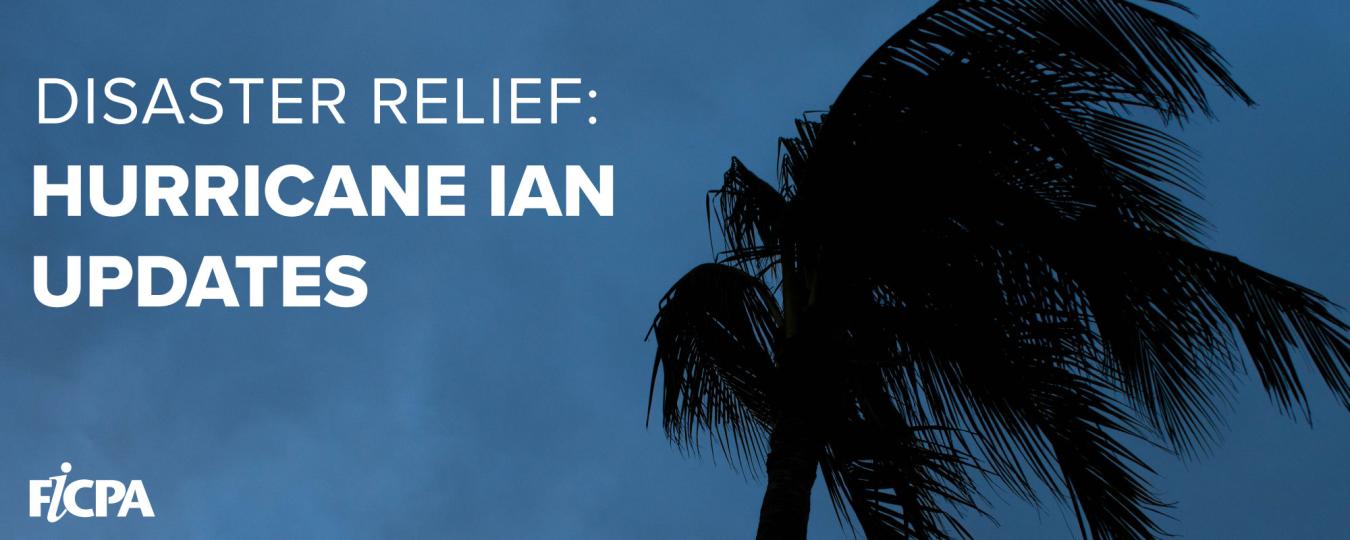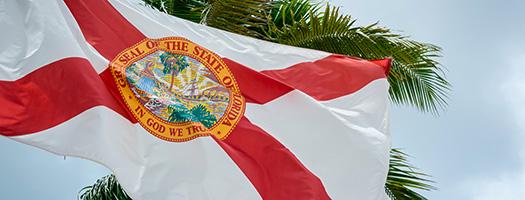
On Thursday, the IRS issued News Release IR-2022-168 providing relief for the entire state of Florida. All counties are included in this relief.
The news release contains this specific language:
“Hurricane Ian victims throughout Florida” and “This means that individuals and households that reside or have a business anywhere in the state of Florida qualify for tax relief.”
As a result, individuals and businesses affected by Hurricane Ian that began Sept. 23 in Florida will have until Feb. 15, 2023, to file returns and pay any taxes that were originally due during this period. This means individuals who had a valid extension to file their 2021 individual income tax until Oct. 17, 2022, will now have until Feb. 15, 2023, to file. The IRS noted, however, that because tax payments related to these 2021 returns were due on April 15, 2022, those payments are not eligible for this relief.
The Feb. 15 extended deadline also applies to quarterly estimated income tax payments that were due on Jan. 17, 2023.
The Feb. 15 deadline also applies to the quarterly payroll and excise tax returns normally due on Oct. 31, 2022, and Jan. 31, 2023. Businesses with an original or extended due date also have the additional time including calendar-year corporations whose 2021 extensions run out on Oct. 17, 2022. It also applies to calendar-year tax-exempt organizations whose 2021 extensions are valid until Nov. 15, 2022.
The IRS' disaster relief page has additional details on returns, payments and tax-related actions qualifying for the additional time.
Practitioners should look to Code Section 7508A and the 7508A Regulations to fully understand the terms, definitions, and examples applicable to this set of filing circumstances.
The disaster declaration permits IRS to postpone certain deadlines for taxpayers who reside or have a business in the disaster area under Code Section 7508A. This includes 2021 individual income tax returns.
The following forms are amongst those that are affected:
- Form 1040
- Form 1120
- Form 1120S
- Form 1065
- Form 1041
- Form 990
- Form 720
- Form 5500
- Form 706
- Form 709
- Form 941
Payments on all estimated tax (individual, corporation, trust, etc.) that would have been due during these periods are also affected.
Practitioners should refer to Revenue Procedure 2018-58 for a complete list of all acts covered by a Code Section 7508A delay.
This relief also includes the filing of Form 5500 series returns in the manner described in Revenue Procedure 2018-58. The relief described in section 17 of Rev. Proc. 2018-58, pertaining to like-kind exchanges of property, also applies to certain taxpayers who are not otherwise affected taxpayers and may include acts required to be performed before or after the period above.
Taxpayers considered to be affected taxpayers eligible for the postponement of time to file returns, pay taxes and perform other time-sensitive acts are those taxpayers listed in Treas. Reg. § 301.7508A-1(d)(1), and include individuals who live, and businesses (including tax-exempt organizations) whose principal place of business is located, in the covered disaster area. Taxpayers not in the covered disaster area, but whose records necessary to meet a deadline listed in Treas. Reg. § 301.7508A-1(c) are in the covered disaster area, are also entitled to relief. In addition, all relief workers affiliated with a recognized government or philanthropic organization assisting in the relief activities in the covered disaster area and any individual visiting the covered disaster area who was killed or injured as a result of the disaster are entitled to relief.
Under section 7508A, the IRS gives affected taxpayers until February 15, to file most tax returns (including individual, corporate, and estate and trust income tax returns; partnership returns, S corporation returns, and trust returns; estate, gift, and generation-skipping transfer tax returns; annual information returns of tax-exempt organizations; and employment and certain excise tax returns), that have either an original or extended due date occurring during the period covered.
The IRS also gives affected taxpayers until February 15, 2023 to perform other time-sensitive actions described in Treas. Reg. § 301.7508A-1(c)(1) and Rev. Proc. 2018-58, 2018-50 IRB 990 (December 10, 2018), that are due to be performed during the covered period.
Unless an act is specifically listed in Rev. Proc. 2018-58, the postponement of time to file and pay does not apply to information returns in the W-2, 1094, 1095, 1097, 1098 or 1099 series; to Forms 1042-S, 3921, 3922 or 8027; or to employment and excise tax deposits.
The Surface Transportation Act of 2015 change certain due dates. These changes are generally effective for taxable years starting after December 31, 2015. These would include fiscal year taxpayers including Forms 1065, 1120, 1120S, 1041, and others. Refer to the instructions for the applicable form to answer any questions on the extension period and appropriate form to file.


